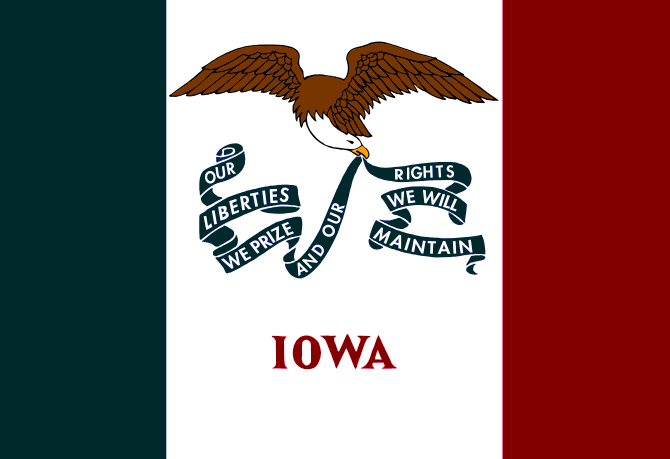The Iowa General Assembly adjourned on May 1, ending the first year of the two-year legislative session. During this legislative session, legislators addressed two constitutional amendments that may be placed on the ballot for voters to decide in 2026 and 2028.
Senate Joint Resolution 11 (2025)
First, the Iowa State Senate passed Senate Joint Resolution 11 (SJR 11). If approved by voters, it would amend the Iowa Constitution to require a two-thirds vote of both chambers of the General Assembly to increase the individual or corporate income tax rate.
Taylor Raygor, from Americans for Prosperity, supported the measure, saying, “In emergencies, we believe the Legislature can work together if it ever was necessary to raise taxes. But in the event that it is, we think having a broad consensus requiring two-thirds is prudent.”
State Sen. Cindy Winckler (D-49) opposes the bill, saying, “This causes me great concern, and I don’t necessarily think this is the time that we would pass something like this, that would take away one of the tools that we currently have. Always, we are very careful in increasing any kind of cost to Iowans. But we need to have the tools in the event that we need them.”
On April 15, the amendment passed the state Senate in a vote of 32-15, with three senators not voting. Thirty-two Republicans voted yes, 15 Democrats voted no, and two Republicans and one Democrat were absent or otherwise did not vote.
SJR 11 was previously approved in the 2023–2024 legislative session. In that session, the amendment was referred to as House Joint Resolution 2006. HJR 2006 was approved in both the House and the Senate, with voting along party lines. In order to pass the amendment and send the measure to voters on the November 2026 ballot, SJR 11 will need to be approved by the state House in the 2026 legislative session.
Senate Joint Resolution 9 (2025)
Second, the legislature passed Senate Joint Resolution 9 (SJR 9) in both chambers. In Iowa, all persons accused of a crime have a right to confront people in court that are witnesses against them. If the amendment passes, the legislature would be able to pass a law limiting that right in certain situations, namely, if the witness is under the age of 18, has an intellectual or developmental disability, or has a mental illness. In practice, such witnesses would be permitted to testify in court remotely, or without the accused person present.
Iowa Attorney General Brenna Bird (R) supports the amendment, saying, “It’s really important that we can protect kids in court, that kids who have been traumatized can have the opportunity to testify outside the presence of the person they may be very, very afraid of.”
Chris Wellborn, president of the National Association of Criminal Defense Lawyers, said that the amendment could violate the US Constitution. He said, “They’re basically futzing around with the Sixth Amendment. I would argue that’s a very dangerous road to go down because when you start saying we carve out exceptions for someone’s confrontational rights, do we also carve out exceptions for their right to present a defense?”
On March 19, the state Senate approved SJR 9 with a 47-0 vote, with three Democrats absent or not voting. Thirty-four Republicans and 13 Democrats voted yes. On April 17, the state House passed the amendment with an 87-6 vote, with six representatives not voting. Sixty Republicans and 27 Democrats voted yes, and three Republicans and three Democrats voted no. Four Republicans and two Democrats were absent or did not vote.
The 2025 legislative session was the first session the amendment was introduced. Because Iowa requires constitutional amendments to pass in two consecutive two-year legislative sessions, the amendment must pass the House and Senate in either the 2027 or 2028 session in order to be placed on the November 2028 ballot.
Senate Joint Resolution 2004 (2024)
A constitutional amendment not addressed in this legislative session is Senate Joint Resolution 2004 (SJR 2004). The amendment would prohibit graduated income taxes. SJR 2004 was passed by both the House and Senate in the 2024 legislative session, but was not addressed by either chamber in 2025. To be placed on the November 2026 ballot, it needs to be approved by both chambers of the General Assembly in the 2026 legislative session.
Between 1985 and 2024, the Iowa General Assembly placed 19 measures on the ballot. Of those, 12 (63.2%) were approved by voters and seven (36.8%) were defeated. On average, there are between zero and one measures on the ballot each year. The greatest number of measures that have been on the Iowa ballot in a year during this period was two.
Additional reading:


